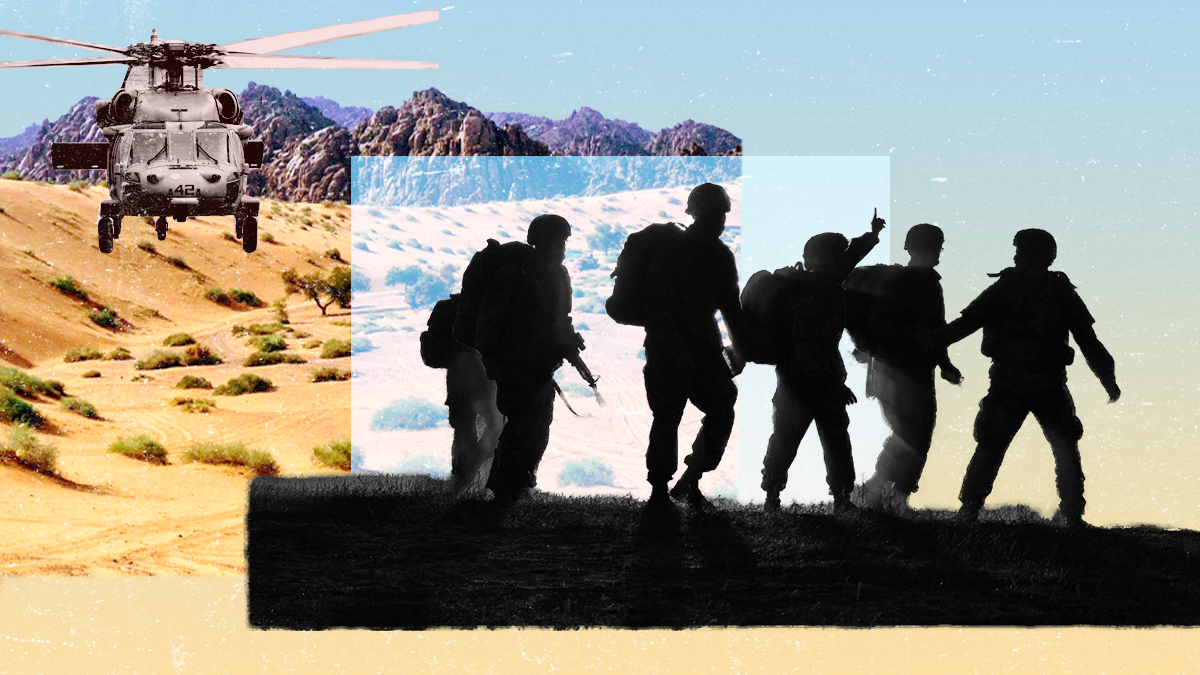November 19, 2020
CNN and the New York Times reported on Monday that before he leaves office on January 20, President Trump will order the withdrawal of nearly half the US troops still serving in Afghanistan and Iraq, and nearly all who remain in Somalia.
If he follows through, this will be the president's final step toward ending the costly US commitment to fight terrorism and bolstering the stability of fragile governments in these countries.
The plan has drawn plenty of fire from within the US government. Trump fired Defense Secretary Mark Esper not long after Esper had informed the White House that he and Pentagon top brass believed that security conditions had not been met for a troop drawdown.
In addition, Republican Senate Majority Leader Mitch McConnell warned this week that "a rapid withdrawal of US forces from Afghanistan now would hurt our allies and delight the people who wish us harm." He compared the idea with "the humiliating American departure from Saigon in 1975."
The debate over this plan gets at the heart of President Trump's attempt to redefine the US role in the world. Before 2017, all post-World War II US presidents had argued that an assertive US global leadership role serves the US national interest.
Trump has challenged this orthodoxy, both before and during his presidency. Too often, he's argued, his predecessors have pushed US soldiers into endless commitments to the security of other countries and allowed selfish "allies" to free-ride at the expense of US taxpayers.
There are strong arguments on both sides of this debate. Here are the most notable:
Against withdrawal
Critics of Trump's plan say that Bush and Obama administration drawdowns of US troops from Iraq (2007-2011) enabled the emergence of ISIS in Iraq and Syria, a problem that proved costlier and more dangerous than the US troop presence.
On Tuesday, NATO Secretary General Jens Stoltenberg warned against a "premature withdrawal" from Afghanistan. In fact, the Taliban have become more aggressive in recent months, particularly against Afghan government forces, and October was the deadliest month for Afghan civilians in more than a year.
Abandoning the fight against terrorists in vulnerable countries signals to US allies (and potential allies) that Washington is not to be trusted.
For withdrawal
For how many years will withdrawal from these countries remain "premature?" Must US troops wait for the day when Afghanistan has a stable government capable of controlling all of Afghan territory? If the goal is more modest than that, why hasn't it been achieved in the 19 years that US and NATO forces have been there?
Must Washington wait until al-Qaeda and ISIS renounce terrorism, and Iran withdraws support for militias in Iraq? Or until Somalia becomes a stable country?
By remaining in these countries all these years, doesn't Washington allow its allies there to believe that they don't really need to prepare to function without US help?
In Somalia, much of the recent US military effort has focused on training and backing a Somali commando unit of 850 troops that has scored major wins against al-Shabaab, an al-Qaeda affiliated terrorist group. Critics of Trump's plan say this force can't function without active US involvement, but why should Somalis prepare to survive without US help as long as they believe the Americans will stay?
So why not withdraw all the troops? President Trump tweeted on October 7 that all US troops should be brought home from Afghanistan by Christmas. In Iraq and Afghanistan, a small number of remaining troops will allow the US to launch counterterrorism strikes from a single command center. US forces will also remain in Kenya and Djibouti, allowing for drone attacks on al-Shabab inside Somalia. The plan leaked to the press this week looks like a compromise.
Give Trump's arguments their due. Americans need to debate these questions, and past presidents have too often fallen back on bromides about "America's responsibility to lead."
What is America's proper role in the 21st century world? What do you think?
More For You
Most Popular
Think you know what's going on around the world? Here's your chance to prove it.
The number of Japanese births continues to plunge, and is set to fall short of the government’s most pessimistic targets this year. That will hit the population, and exacerbate the economic challenges that Prime Minister Sanae Takaichi faces.
- YouTube
How will energy shape global power in 2026 and beyond? In GZERO’s 2026 Top Risks livestream, Gerald Butts, Senior Advisor at Eurasia Group, breaks down the growing US-China competition for energy dominance.
© 2025 GZERO Media. All Rights Reserved | A Eurasia Group media company.
